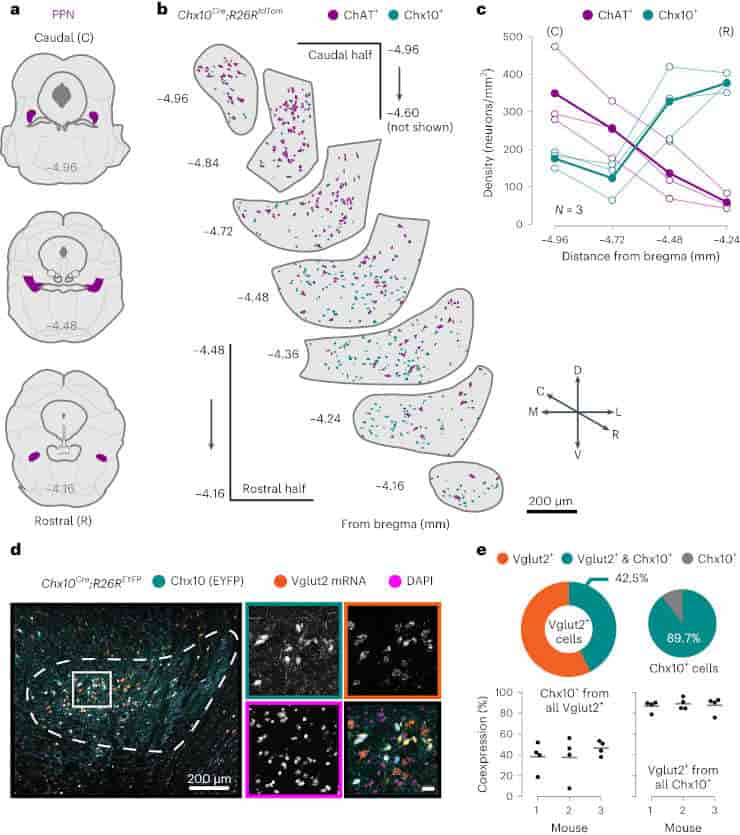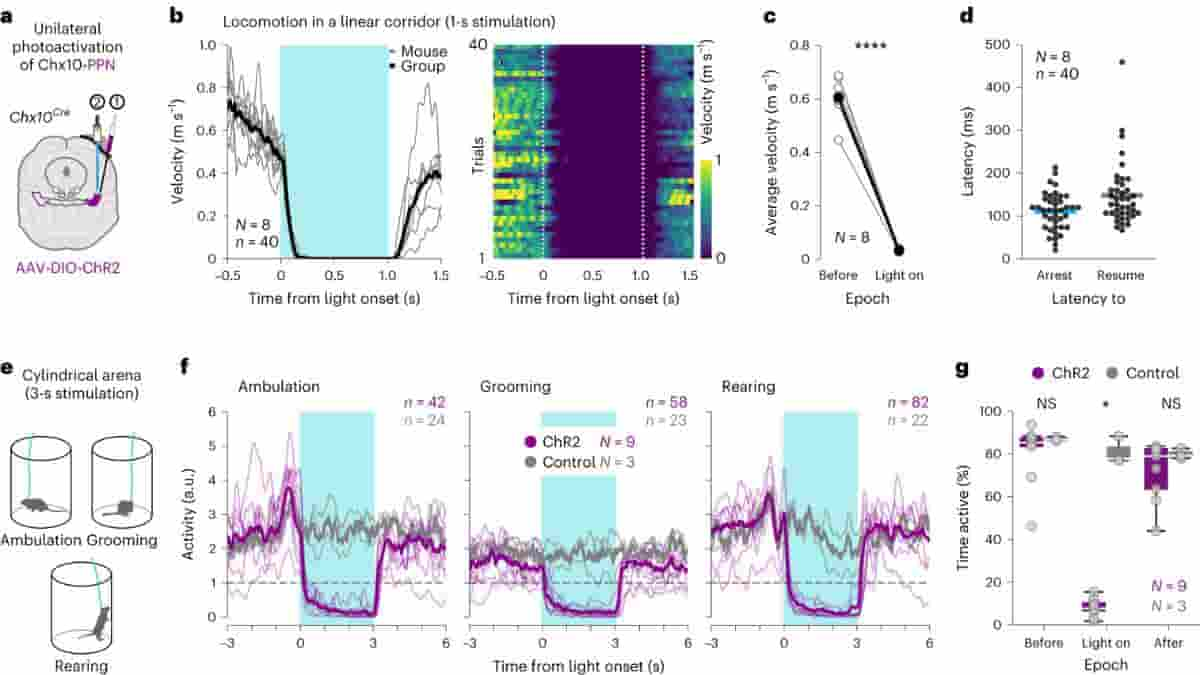Researchers have made a discovery that expands our understanding of what happens in the brain when we stop moving suddenly. Think of a hunting dog that picks up the scent of a deer and then freezes on the spot. Or someone trying to solve a tricky maths story problem on a school test.
“We have found a group of nerve cells in the midbrain which, when stimulated, stop all movement. Not just walking; all forms of motor activity. They even make the mice stop breathing or breathe more slowly, and the heart rate slow down,”
said study co-author Professor Ole Kiehn.
There are numerous ways to halt motion. The unique characteristic of these nerve cells is that, when activated, they halt or freeze movement. Exactly like pausing a movie, movements stop abruptly on the spot.
When the researchers stopped stimulating the nerve cells, the mice resumed their movements precisely where they had left off. Identical to pressing “play” again.
Pedunculopontine Nucleus Neurons
The nerve cells stimulated by the researchers are located in the midbrain, in an area known as the pedunculopontine nucleus (PPN), and they differ from other nerve cells in the PPN by expressing a specific transcription factor known as ChX10.

Most Chx10+ neurons also express Vglut2 mRNA. Pie charts depict group means (Vglut2+only, orange; Vglut2+ and Chx10+, cyan; Chx10+ only, gray). Strip plots show single hemisections and the mouse average (gray line; N = 3 mice, 4 hemisections/mouse).
Credit: Nat Neurosci (2023). CC-BY
All vertebrates, including humans, have the PPN. Even though the study was conducted on mice, the researchers believe the phenomenon will also apply to humans.
“This ‘pause-and-play pattern’ is very unique; it is unlike anything we have seen before. It does not resemble other forms of movement or motor arrest we or other researchers have studied. There, the movement does not necessarily start where it stopped, but may start over with a new pattern,”
said Ph.D. Haizea Goñi-Erro, first author of the study.
Fear Freezing?
Some people believe that fear activates nerve cells. The phenomenon of “freezing” caused by extreme fear is well-known to most people. However, this is not the case here.
“We have compared this type of motor arrest to motor arrest or freezing caused by fear, and they are not identical. We are very sure that the movement arrest observe here is not related to fear. Instead, we believe it has something to do with attention or alertness, which is seen in certain situations,”
said co-author Assistant Professor Roberto Leiras. The researchers believe it is case of focused attention being expressed.
They emphasize, however, that the study has not revealed whether or not this is the case. More research is needed to demonstrate this point.
Parkinson’s Disease
The new research could aid in our understanding of some of the mechanisms underlying Parkinson’s disease. One of Parkinson’s disease’s hallmark symptoms is motor arrest or slow movement.
“We speculate that these special nerve cells in PPN are over-activated in Parkinson’s disease. That would inhibit movement. Therefore, the study, which primarily has focused on the fundamental mechanisms that control movement in the nervous system, may eventually help us to understand the cause of some of the motor symptoms in Parkinson’s disease,”
Ole Kiehn said.
The researchers used optogenetics, among other techniques, to stimulate nerve cells in the brainstem. The researchers were able to trigger a specific group of nerve cells in mice, determining their motor function.
The study defines a motor command that causes a global motor arrest and identifies a locomotor-opposing role for rostrally biased glutamatergic neurons in the pedunculopontine nucleus.
Reference:
- Goñi-Erro, H., Selvan, R., Leiras, R. et al. Pedunculopontine Chx10+ neurons control global motor arrest in mice. Nat Neurosci (2023).
